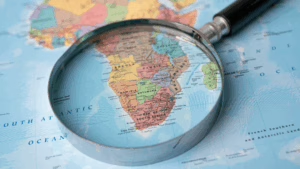Overpacking and Underplanning
The urge to prepare for every possible scenario is understandable. However, overpacking is one of the most common and most avoidable travel mistakes. Novice travelers often bring outfits for every weather condition, multiple pairs of shoes, or full-sized toiletries, only to end up with excess luggage. The result can include baggage fees, and most certainly, unnecessary stress, limited space, and travel flexibility. I know I have experienced all of these.
We recommend organizing your wardrobe around layering and reusability. Arrange your clothes by outfits versus separates. Stick to versatile items that can be worn multiple times or dressed up and down. TSA-friendly travel bottles and minimalist kits save space and time.
Under planning can be just as problematic. Improper planning can lead to missed excursions, missed flights, wrong train stations, or overpriced hotel options. Booking at least your first few nights, understanding local transportation, and mapping out major attractions ahead of time gives you a solid foundation to explore freely.
Ignoring Visa and Entry Requirements
Every year, travelers are rejected at airport gates or immigration checkpoints because they failed to verify whether or not a visa was required. In other situations, many did not realize their passports were no longer active.
Most countries require that passports be valid for at least six months beyond your planned return date. Some countries, like Australia or India, require an electronic travel authorization (ETA) or pre-approved visas, even for short stays. The U.S. Department of State and each country’s consulate website provide up-to-date requirements.
A friend of mine once booked a last-minute trip to Brazil, only to learn at the airport that she needed a visa, which had to be processed in advance. Unfortunately, she never boarded the plane.
Never assume your passport is enough, especially in this day and age. Check the rules of the countries you are visiting well ahead of time so you are adequately prepared. Some visas require additional documentation, proof of income, or even vaccine records.
Booking Without Research
On the surface, a cheap flight or hotel might look like a great deal, until you realize it comes with a 15-hour layover, no free baggage, or is located miles away from your desired location. Booking based purely on price is tempting, but often leads to buyer’s remorse. For example, I used to be one of those who booked double connections to get the best-priced ticket. I realized not only that the chance for flight delays and cancellations increased, but I was also always exhausted by the time I got to my destination.
These days, I take time to compare flights with layover times, total travel duration, and airline reviews. For accommodations, study maps, and read recent reviews, not just star ratings. Are people complaining about noise, dirty sheets, or bait-and-switch listings? Never rely solely on the booking platform’s photos. I did this last year and ended up staying at a hotel I had vowed to never patronize again. This was all because they changed the photo – it was so convincing, I just looked at the price and details and booked, not realizing until I arrived it was the same horrible hotel I had booked several months prior.
Also, always cross-reference reviews across platforms. A hotel that has four stars on one site might be rated much lower elsewhere. Use sites like TripAdvisor, Google Reviews, and Reddit forums to get a more honest picture. When in doubt, prioritize location and cleanliness over luxury amenities.
Failing to Notify Your Bank or Prepare for Currency Exchange
Few things are more stressful than having your credit card declined in a foreign country because your bank thinks it has been compromised. Yet many people do not set up a travel notice on their bank’s app or website. This simple step might save you hours of headaches.
Additionally, many travelers lose money by exchanging currency at airport kiosks, which tend to have unfavorable rates. We recommend withdrawing cash from an ATM upon arrival or using a credit card with no foreign transaction fees.
Apps like Revolut or Wise offer multi-currency debit cards with competitive rates. Some cards even allow you to lock in exchange rates ahead of your trip. Planning your finances also means you can avoid carrying large amounts of cash, which can be risky in certain locations.
Skipping Travel Insurance
Travel insurance is like any insurance: out of sight and out of mind until you need it. Flight cancellations, lost luggage, stolen items, or emergency medical care can add thousands to your trip’s total cost.
The New York Times reported in 2023 that nearly 40 percent of travelers faced a disruption in their itinerary. We all have been there! Some issues were minor, others were major medical events abroad. The right travel insurance policy can reimburse you for nonrefundable bookings or cover emergency care when your domestic health insurance does not apply.
Search for policies that cover medical emergencies, trip cancellations, and baggage issues. Companies like World Nomads, Allianz, and SafetyWing are popular among frequent travelers. Read the fine print carefully, as not all policies cover adventure activities, pandemics, or pre-existing conditions.
Ignoring Local Etiquette and Safety Practices
Nothing marks you as a tourist faster than disregarding local customs. Travelers who fail to research basic etiquette in the countries they are visiting may not only face awkward situations, but they may also put themselves at risk.
Safety also varies dramatically depending abroad, just as it does in different areas of any country. A neighborhood that is safe by day might be unsafe at night. Political protests, pickpocket hotspots, and scams often target visitors unfamiliar with the area.
Government websites like travel.state.gov or apps like Smart Traveler provide alerts for political unrest or health advisories. When you arrive, talk to your hotel staff or hosts about neighborhoods to avoid. Simple habits like dressing modestly, keeping valuables out of sight, and staying aware of your surroundings go a long way.
Overscheduling and Underestimating Jet Lag
Many travelers want to “do it all,” especially on short trips, due to FOMO – a fear of missing out! However, an overly ambitious itinerary often leads to burnout. How can you enjoy the experience, excursion, and location if you are tired from racing from place to place?
A better approach is to plan a few key experiences per day and leave space for spontaneous discoveries. Maybe you stumble upon a street fair, a hidden café, or a local festival, give yourself space to enjoy it. If you are visiting multiple cities or countries, consider spending an extra day in each location to absorb the culture instead of just ticking off boxes of destinations.
Jet lag can also sabotage your plans. Crossing time zones disrupts your internal clock, leaving you groggy, irritable, or wide awake at 3 a.m. Start sleeping in the same time zone as the country you will be visiting, a few days before departure, to limit jet lag. Stay hydrated, and get sunlight exposure to help reset your body’s rhythm.
Relying Too Heavily on Technology
With the advancements in technology, we go to our phones for everything. Directions, boarding passes, and translation services are some needs that technology fulfills in seconds. While these tools are helpful, solely depending on them can be disastrous, especially when technology fails or WI-FI is inaccessible.
International travel often involves weak Wi-Fi, dead phone batteries, or SIM cards that do not work as expected. Some countries even restrict internet access or censor certain apps. If all your reservations, directions, and itineraries are stored online with no offline backup, a simple power outage or a no-signal zone can affect your itinerary.
Print or download copies of essential documents, boarding passes, hotel confirmations, emergency contacts, and even maps, before you leave. Use apps like Maps.me or Google Maps offline mode to save navigation routes in advance. Store PDFs in your phone’s files app and email yourself a master itinerary just in case.
Carry a portable charger and an international power adapter. Investing in a universal adapter ensures your devices stay powered, regardless of outlet type. You may not need paper guidebooks anymore, but having basic backups for critical info makes your trip more resilient and much less stressful when things go sideways.
Neglecting Health Precautions and Vaccinations
Travel can expose you to illnesses with which your body is unfamiliar. One of the biggest mistakes travelers make is skipping health prep, assuming “I will be fine.” But even a mild stomach bug can derail an otherwise amazing trip.
Start by checking if any vaccinations are recommended or required for your destination. Countries in Africa, South America, and Southeast Asia often require proof of yellow fever vaccination, for example. The CDC and WHO websites list up-to-date vaccine and health alerts by region. Ideally, visit a travel clinic 4 to 6 weeks before your trip.
Also, research local food and water safety. In some areas, tap water is not safe to drink. Bottled or filtered water is your best bet, especially when brushing your teeth or ordering ice. Eating street food? Look for vendors with high turnover and locals in line.
Pack a basic first-aid kit with essentials like pain relievers, bandages, diarrhea medicine, motion sickness pills, and any prescription meds. Bring more than you think you might need, and keep medicine in your carry-on luggage gets lost more often than you’d think.
Being proactive about your health means fewer disruptions and a more enjoyable, worry-free adventure.
TL;DR: Travel Mistakes to Avoid
- Pack versatile outfits and leave room for souvenirs
- Research visa requirements and passport validity well in advance
- Cross-check flight and hotel reviews, not just prices
- Notify your bank and avoid airport currency exchanges
- Always buy travel insurance
- Learn local etiquette and stay aware of safety concerns
- Plan rest time and account for jet lag
- Download documents and maps
- Stay healthy: get required vaccines, and pack a travel first-aid kit
Travel is one of life’s greatest memory makers. With a little preparation, wisdom and common sense, your next adventure can be as rewarding as it is relaxing.
















